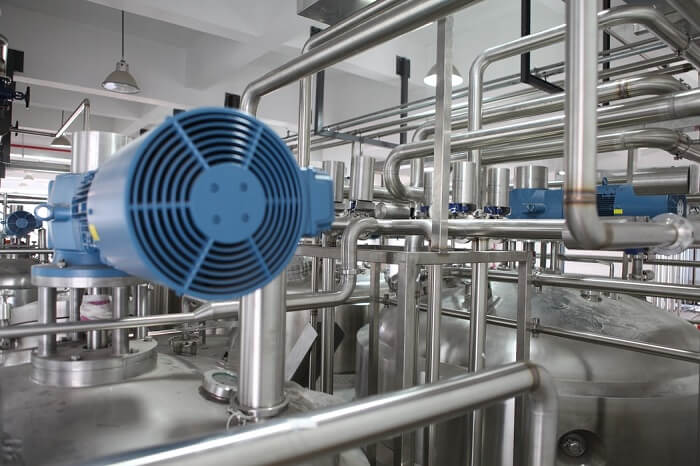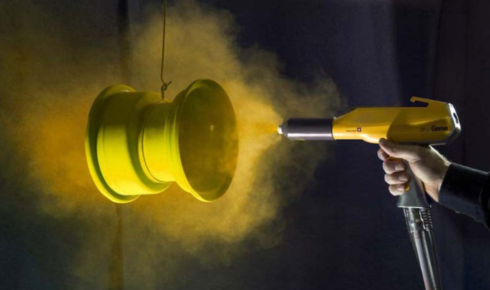Heat is more than a requirement—it’s a tool that shapes, forms, cures, and controls across dozens of industries. The sectors that rely on custom industrial heaters demand accuracy, durability, and seamless integration into complex systems. From high-speed packaging lines to aerospace-grade bonding equipment, industrial heating products remain essential to daily operations.
Plastic Fabrication Plants Using Cartridge Units for Die Head Heating
Plastic production depends on precision, especially where extrusion and molding occur. Cartridge heaters serve as the backbone of die head heating systems, offering direct, concentrated heat where polymers need to be shaped and formed. These units allow for tight temperature control, maintaining the viscosity of the plastic as it flows through the machinery.
Die heads must maintain uniform temperature to avoid flow inconsistencies or defects in the final product. Industrial heaters USA-made offer the durability and reliability required for this task, performing under non-stop cycles. Whether extruding tubing or forming sheet plastics, consistent thermal performance reduces waste and boosts productivity in fabrication plants.
Food Production Lines Relying on Thermal Bands for Continuous Operation
Temperature stability is non-negotiable in food processing. Thermal bands wrap around hoppers, filler nozzles, and sealers to maintain consistent heat during packaging, cooking, or forming operations. These accessories allow food producers to meet health standards and reduce variations in batch quality. On automated lines where uptime directly affects profitability, thermal bands paired with cartridge heaters offer dependable performance during extended shifts. Industrial heating accessories help prevent unplanned shutdowns due to uneven heating or mechanical failure. Food-safe materials and quick maintenance access are key factors for processors choosing high-grade heating systems.
Aerospace Assembly Floors Applying Strip Heaters During Bonding Cycles
In aerospace assembly, precise heat application ensures materials bond correctly without compromising structural integrity. Strip heaters, known for their surface heating capabilities, are used during bonding cycles for composite parts and critical subassemblies. The goal is to maintain steady heat across wide, flat surfaces without hot spots.
Aerospace floors utilize industrial heating products that offer both rugged construction and pinpoint thermal control. These heaters must perform in environments where temperature variance of even a few degrees can cause delamination or joint failure. For structural bonding of composite skins or honeycomb cores, custom industrial heaters deliver performance that meets aerospace-grade specifications.
Medical Device Manufacturing Demanding Stable Point-source Heat
The manufacture of medical devices demands exceptional precision and cleanroom compatibility. Cartridge heaters are used in assembly tools and welding systems where stable, point-source heat is needed for processes like tube sealing, injection molding, or catheter forming. Their compact size and fast response make them ideal for tight thermal tolerances.
Devices for diagnostics or patient care often involve materials sensitive to thermal fluctuation. Industrial heaters USA suppliers support this sector with components built from non-contaminating materials and configured for exact temperature delivery. These heaters help ensure production meets strict regulatory requirements while maintaining fast cycle times.
Automotive Suppliers Curing Adhesives with Uniform Heating Tools
Modern automotive production integrates adhesives in everything from body panels to electronic modules. Curing these adhesives correctly relies on even, reliable heat. Cartridge heaters and strip heaters are installed into platen presses, bonding jigs, and custom fixtures to activate and cure heat-sensitive bonding agents.
Uniform temperature prevents delamination and increases bond strength, both critical to safety and durability. The automotive sector demands industrial heating elements manufacturer solutions that match the speed and volume of assembly lines. These heaters not only ensure quality control but also reduce rework and downtime during production shifts.
Chemical Processing Tanks Using Immersion Elements for Fluid Stability
Chemical plants deal with fluids that must stay within specific temperature ranges to remain effective or safe. Immersion heaters are lowered directly into tanks to maintain fluid stability, whether heating acids, solvents, or water-based solutions. These heaters offer direct thermal transfer and can be configured to operate in aggressive environments.
Because many chemicals are reactive, industrial heating products used in these tanks must be built with corrosion-resistant materials like stainless steel or Incoloy. They must also support temperature regulation systems for automated plant control. By preserving process integrity and ensuring consistent reactions, immersion heaters serve as silent workhorses in chemical manufacturing.
Packaging Equipment Builders Sourcing Consistent Heat for Sealing Jaws
Heat sealing is a cornerstone of packaging, and sealing jaws must maintain uniform temperature across their entire surface. Builders of vertical and horizontal form-fill-seal machines rely on cartridge heaters and custom heating tools to keep these jaws at optimal operating levels. Without consistent heat, seals fail or packaging integrity weakens.
Designers of these machines often integrate industrial heating accessories that allow for quick replacements and simplified wiring. These heaters are built to endure frequent cycling and mechanical pressure without losing thermal consistency. Their performance directly affects product shelf life, tamper resistance, and customer satisfaction.
Laboratory Instrument Makers Requiring Embedded Heat in Compact Designs
Scientific instruments often depend on internal heat sources for temperature-sensitive processes like sample analysis, chemical testing, or material conditioning. These instruments typically use embedded cartridge heaters to provide localized, responsive heat in restricted spaces. The precision needed in lab environments demands heaters that are both compact and dependable.
Engineers in this sector look for industrial heating elements manufacturer options that can be tailored to unique geometries without sacrificing reliability. These heaters help support repeatable test results and minimize fluctuations in controlled environments. Their role extends beyond comfort or convenience—they uphold the integrity of scientific research.




